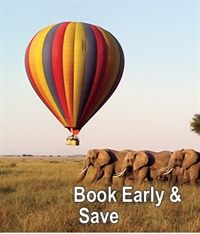Kenya Travel Information
Full country name: Republic of Kenya
Area: 583,000 sq km
Population: 32,339,770
Capital city: Nairobi
People: 20% Kikuyu, 14% Luhya, 15% Luo, 12% Kalenjin, 11% Kamba, 6% Kisii, 6% Meru, 16% other
Languages: English, Swahili, indigenous.
Religion: 40% Protestant, 36% Roman Catholic, 16% Muslim, 6% Animist
Government: Republic (multiparty state)
President: Uhuru Kenyatta
GDP: US$42.4 billion
GDP per head: US$1525
Annual growth: 3 %
Inflation: 2.5%
Major industries: small-scale consumer goods (plastic, furniture, batteries, textiles, soap, cigarettes, flour), agricultural processing, oil refining, cement, tourism
Major trading partners: Uganda, Tanzania, UK, Germany, UAE, South Africa
FACT FOR TRAVELLERS
VISA AND HEALTH REGULATIONS
Different regulations apply according to nationality and country of origin and should be checked with the nearest tourist office or diplomatic mission. Ensure you have relevant health documents and visa on arrival.NB:Please note that Kenyan and Tanzania Visa can be obtained on arrival at their respective airports and crossing boarders on presentation of US$50.
CLOTHING
Evenings and mornings can be cool in higher altitudes. It is therefore recommended to have sweaters, jackets and long-sleeved shirts. Some clubs require official dressing code and gentlemen must where jackets and ties while ladies equivalent eveningwears. In campsites, as in lodges, generally eveningwear is casual.
Local customs and morals should be held with esteem. Most hotels, camps and lodges offer laundry services.
AIRPORT DEPARTURE TAX
This is contemporarily included in the airfare and you need not worry about it unless specified.
AIR TRANSPORT
There is a comprehensive network of internal scheduled flights to all major game parks and reserves. Aircrafts range from Dakota DC's to small Cessnas or similar, but all aircrafts on scheduled services are twin engined. It is important to make prior arrangements for pick up on arrival at the airport or airstrip to avoid the hassle witnessed in most cases.
CLIMATE
Considerably good with generally warm sunny days, minimal humidity and cool evenings- except at the coast. Close to the equator, there are no real seasons and every time has its special attractions. There are two rainy seasons; April- June and Mid September- November. It is normally pouring early morning or late evening giving some space during the day for some activities. Temperature and humidity vary a great deal with altitude and it can get really chilly in the mornings or evenings.
CURRENCY
Import or export of currency is restricted, but there is no limit to the amount of foreign currency a visitor can import as long as it is exchanged through authorized dealers. Most premises and even bureaus do not accept Travelers Chequs [TC's]. US$ and Euros are widely acceptable.
FOOD AND DRINKS
On Safaris food is provided on full-board basis. In Kenya and Tanzania standard of cuisine is high, whilst in Uganda, it is generally simple but palatable. Drink selections are good including premium brands and imported wines.
Tap water is generally clean in the urban but tourists are advised to drink only treated water or mineral water bottled and widely available in many shops.
HEALTH
Malaria is endemic in certain areas of East Africa and all visitors should take precautions against Malaria. There are chemists in major centers but visitors on special medication should stalk well for their stay.
24 HOUR ASSISTANCE
Our guest relation staff is in attendance 24 hours a day, seven days a week to handle any eventuality that might crop up any odd hour. Telephones at our head office in Nairobi are manned 24 hours daily.
LUGGAGE
Should be kept to a minimum during tours and just a piece plus a small overnight bag is as ideal as adequate.
SECURITY
Common sense should prevail and precaution taken just like in any holiday destination. Keep valuables in safe deposit boxes in hotels and lodges. Carry money only enough for your daily expenditure. Keep close eye on your handbag or wallet. Avoid waking at night and use a taxi if you must go from place to place. Taking photographs at airports, near military installations or policemen and big hotels etc is prohibited. Seek assistance of your driver guide in this matter.
ELECTRICITY
Voltage in East Africa is 240 volts - British standard generally through 3-pin plugs. There is occasional power rationing during dry periods.
MOUNTAIN CLIMBING
Mt. Kilimanjaro and Mt. Kenya do not require any special mountaineering skills but due to high altitude, acclimatization and fitness are handy. Recommended kit [climbing gear] can be hired from most operators.
WALKING AND TREKKING SAFARIS
Walking safaris can be organized in almost any part of Kenya and Tanzania and also in some parts of Uganda. They range from The Paradise lost and Ngong' Hills in Nairobi for just a day, to Selous Game Reserve for three weeks in Tanzania. This eliminates the artificial barriers of a vehicle, ensuring much closer experience of the bush, animals, and the people than on a conventional safari.
Trekking takes place in the wilderness mountainous and deep winding canyons of the harsh, spectacularly beautiful region of the Great Rift Valley, north west of Maralal. The terrain is only accessible on foot and donkeys or camels are used to carry equipment. An experienced armed guide accompanies the safari group ensuring a memorable trip by virtue of his vast knowledge of the area and wildelife.
Short nature and bird watching walks can be organized from most lodges and camps.
NB: Feel free to ask any question concerning your holiday plans and we will take much pride in sharing with you the wealth of knowledge and expertise
WHEN TO GO
The main tourist season is in January and February, since the hot, dry weather at this time of year is generally considered to be the most pleasant. It's also when Kenya's birdlife flocks to the Rift Valley lakes in the greatest numbers. June to September could be called the 'High season' as the weather is still dry and Low season begins in April and end in May. During these months things are much quieter - places tend to have rooms available and prices drop. The rains generally don't affect travellers' ability to get around.
EVENTS
Kenya's most spectacular annual event is organised by an unlikely group - wildebeests. Literally millions of these ungainly antelopes move en masse in July and August from the Serengeti in search of lush grass. They head south again around October. The best place to see this phenomenon is at the Masai Mara National Reserve. Kenya's more orthodox annual events include public holidays such as Kenyatta Day (20 October) and Independence Day (12 December).




